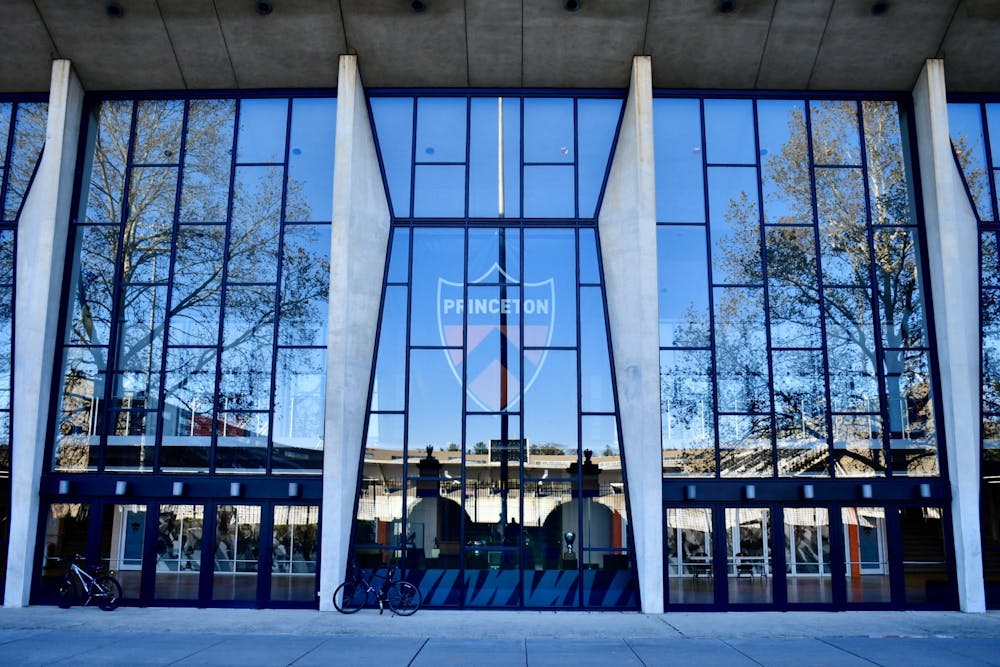The 2020–2021 season marks the 50th anniversary of women’s sports at Princeton University. The relative newness of the women’s athletic program is a rather striking and timely reminder that women’s collegiate sports are still in their infancy. The fact that such a momentous milestone has landed this year — a year in which it is not clear whether sports at all— demonstrates the fragility of our athletic system, especially the women’s program.
As a result, it is important now more than ever to protect the spirit of sport at Princeton. But instead of preserving and promoting collegiate athletics, the administration has been mostly silent and decidedly vague.
Last week, President Christopher Eisgruber ’83 wrote that Princeton will announce its spring semester plans during the first week of December. However, the email did not mention college sports, leaving teams, coaches and athletes to wonder when or if they should expect to hear anything about the spring season. As athletic programs face tremendous upheaval, the administration’s lack of guidance has made it difficult to navigate this trying situation.
This lack of communication has had a number of consequences for our athletic community. As a member of the women’s swim team, I have experienced first hand the harmful effects of team members being spread far and wide with no clarity on when they can reunite. The knowledge that we have little time left with our seniors, the leaders of our team, only exacerbates the grief associated with our loss of proximity.
Indeed, seniors playing spring sports face an especially difficult situation this year. With no clarity as to the likelihood of a spring season, they are left in the dark about whether or not their final season is already behind them. This ambiguity is not only incredibly emotionally trying, but it also presents a practical issue. Between applying for jobs or to graduate school, working on a senior thesis, and attending classes, time is a luxury many seniors do not have. Dedicated commitment to collegiate sport necessitates copious hours of practice, training, travel, and recovery. The sad reality for many seniors is that without having a season to work towards, their time may be better spent on other professional or creative endeavors that better prepare them for life beyond college. Without such certainty, or even an indication as to what to expect in the spring of 2021, the graduating class is left in limbo.
This lack of certainty has also affected Princeton’s coaches. Isolated from their athletes and without a championship to prepare for, they are left unsure of their role in uncharted athletic territory. Recent NCAA rulings have made it so that student-athletes who are in-season, but not on campus, are not allowed to have virtual practices supervised by coaches, and are unable to report any stats or data from athletically-related practices or workouts to our coaches. Meanwhile, in-conference rival teams with players on campus are still able to hold practices, even with COVID-19 restrictions in place. With the knowledge that competitors are free to do much more during this time, tensions have never been higher between coach and team, which only serves to exacerbate existing feelings of isolation and distance that coincide with the virtual format.
Not only have relationships between athletes and coaches disintegrated, those among athletes have as well. Teams are breaking down. Some student-athletes have decided that they would be better off pursuing their goals elsewhere and, receiving no word from the administration regarding sports in the spring, elected to transfer. With transfer students leaving absences in their wake, teams are in disarray — a state only worsened by the inability to meet in-person and make collective decisions and plans.
The lack of clarity has also damaged the prospects of future athletes at Princeton. In some instances, the University’s response to the pandemic has driven entire teams, such as men’s golf, to take leaves of absences, completely disrupting the usual recruitment process and leaving very few spots for the incoming class of 2025.

While all of these challenges affect the broader collegiate community, the irony that they should disrupt women’s athletics in a year when our program is celebrating a major half-century milestone makes the disruption feel that much more profound.
Tradition needs time to grow roots and the uncertainty that has come with the physical uprooting of athletes feels specifically acute for women’s sports.
There is no doubt that collegiate sports cannot go on the way it normally would in the coming semester. The pandemic has brought enormous challenges, entirely disturbing familiar methods of operation and making the execution of a collegiate season more difficult than ever before. However, this does not mean that we should do away with the idea of competition altogether. Indeed, Princeton collegiate sports have brought joy, purpose, camaraderie, and a sense of belonging to the student community; values that are even more important in our current moment.
During this time, coaches and athletes are especially in need of reassurance and guidance, yet the administration seems reluctant to offer a single word as to what we can expect in the spring, or even an inclination that they are attempting to find creative solutions to address the challenges we face.

Guarantees aren’t needed, nor are hasty decisions, or promises that are likely to be broken. Any gesture will do – just to know that our staff, coaches, and athletes have not been forgotten, and that our voices have not been lost in the void.
Claudia Frykberg is a junior in the English department. She can be reached at frykberg@princeton.edu.








